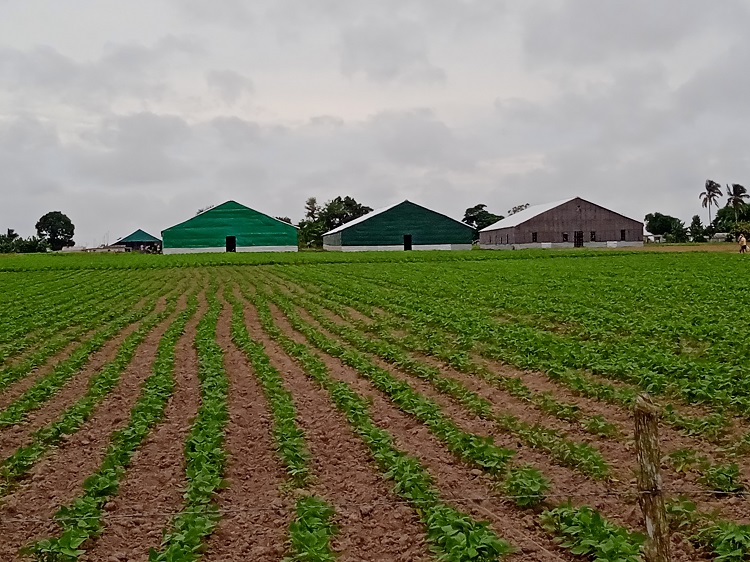With more than 8,000 hectares planted at the end of October and the expectation of ending November with around 14,000, the cold season in various crops is advancing, despite the delays caused by the rains at the beginning of the campaign.
According to Joel Hernández Acosta, delegate of Agriculture in Pinar del Río, in the months of December, January and February, conditions should continue to improve, because despite the fuel deficit, producers make a great effort with animal traction. starting with the delivery of more than 10,000 plowshares.
He explained that at the end of February, the province must finish planting the more than 40,000 hectares contemplated in the plan, to which are added some 3,500 hectares of rice at the Los Palacios Agroindustrial Grain Company (Eaig).
He emphasized that sweet potato, cassava and banana are the crops that are promoted in the case of vegetables, while tomato, cabbage and pepper are the most representative in vegetables. He specified that the province faces a good bean campaign that exceeds 5,000 hectares of grain.
He said that the plan also includes 110 hectares of potatoes, 80 of them in a traditional way that will be concentrated in Consolación, Pinar del Río and Los Palacios, and 30 in an agroecological way, from which it is expected to obtain about 12 tons and will plant in all the municipalities of the province, except in San Luis.
Regarding the planting of bananas, one of the crops most affected by “Idalia”, he added that they incorporate the extra-dense method in 16 producers in the province with about 30 hectares, which will increase next year to more than 300 by this system.
“Today we have a strength in the territory’s biofactory, which by the end of December should exceed 200,000 positions and by next year exceed one million,” he declared.
A LOOK AT TOBACCO
In a tobacco dispute greater than the previous one, the manager noted that in order to fulfill the commitment of more than 12,000 hectares of the leaf, today a good part of the inputs and fuel for the crop are guaranteed.
“We already have more than 200,000 irrigated seedbeds in the province, a process that must end on November 20 to be able to finish planting in the first days of January.”
He said that they continue the construction of tobacco houses, which are already around 4,900, and to do so they maintain the transfer of wood from the different agroforestry companies in the territory.
In the case of the Virginia project, he stressed that the plan is for 300 hectares, 200 in Consolación del Sur and 100 in San Luis. The expectation is that starting December 15 they should be curing the first productions, which so far appear to be in very good condition and without any sign of pests.

;Resize=(1200,627)&impolicy=perceptual&quality=mediumHigh&hash=db5d4b2bbd7ca97784114a649787dd06aaf81db3417b57245114f23cf046f261)
